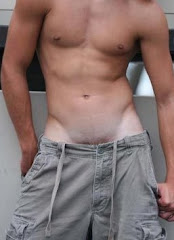
To some the phrase “everyone loves to have their picture taken” is the exact antithesis of their feelings. Photographer Howard Zucker hopes that he will be able to change the fear of being photographed into joy, and cause people to have greater self-confidence in the process.
“People come to me with scars from major accidents, or other physical damage. It’s a very difficult thing for them to do, initially,” Zucker’s clients frequently wait nervously in their cars before entering the studio. “But after the process, it is very much a healing experience for them.”
Men might even feel negatively about themselves after past relationships go sour and end in angry remarks related to physical appearance. Coming out can also be a traumatic experience, as friends, peers, and loved ones could abandon you. Conversely, if you do not “fit in” with other gays you might feel alone and rejected, hating the “man in the mirror.”
Dr. Arlen Leight, PhD, LLC, is one of the therapists who sends patients to Howard to further a better self-image.
Leight’s workshop helps participants change self-perception and body image. Many of the people photographed by Zucker change their minds about plastic surgery. He photographed men at the Gay Men’s Health Summit last year and plans to do so again for their 2010 conference.
“I had been hiding in my apartment, leaving only to go to work or to the store. Once I got on disability I rarely left the sofa,” said Whitt. “Then my partner talked me into letting Howard take some photos.”
After the photos were taken Whitt’s self-image and self-confidence were restored. He soon after joined the Gold Coast Chapter of American Veterans for Equal Rights (AVER) and – to his surprise – was appointed color guard coordinator. Whitt and his partner manned the AVER booth at South Florida Pride this past March, and their picture ended up on the front cover of our Pride Issue. Clearly he no longer hides from the camera and is an active member of the community as well.
“Before sending the first client for Howard’s services I experienced the amazing process of Self-Image Photography myself and therefore have first-hand knowledge of what my clients reported. [Howard] is patient and supportive.”
“I restarted my therapy after relocating to South Florida, and wanted to achieve immediate results so I agreed to the new type of photographic therapy suggested by my therapist. It allowed me to address 2 of my larger issues—low self-image and having my picture taken. Plus it allowed me a new avenue to discuss my issues with my new therapist.”
“I would highly recommend it to anyone looking for a novel approach to their therapy.”
“Ideally what I would like to see are more therapists giving real, psychological input about the effects the photos have on people. The 5 guys in the workshop had amazing transformations about how they view themselves in the world. If it can do just that it’s a wonderful thing.”
For more information on Self-Image Photography please visit momentumz.com.



















No comments:
Post a Comment